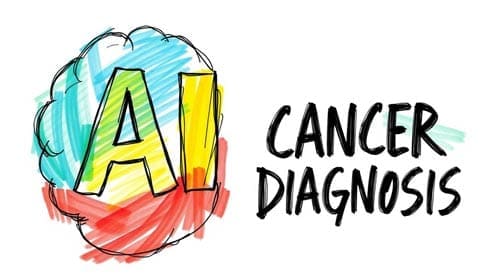Use of AI in Predicting Cancer Recurrence and Patient Outcomes
Please like and subscribe if you enjoyed this video 🙂
Abstract
This paper explores the application of artificial intelligence (AI) in predicting cancer recurrence and patient outcomes. It examines recent advancements in AI-driven technologies and their integration into oncology, highlighting their potential to improve prognosis accuracy, treatment planning, and overall patient care. While AI offers promising benefits, challenges such as data limitations and clinical implementation barriers remain. The findings emphasize the need for further research and careful integration of AI into healthcare to maximize its impact.
Introduction
Cancer remains a leading cause of death worldwide, with millions of new cases diagnosed each year. Despite advancements in treatment options, cancer recurrence and poor patient outcomes continue to be major concerns for healthcare professionals and patients alike. In recent years, artificial intelligence has emerged as a promising tool in the fight against cancer, offering new ways to predict disease recurrence and improve patient outcomes.
This paper is focused on how AI is being applied in cancer prediction, assessing its ability to analyze vast datasets, detect patterns, and provide valuable insights into recurrence risks and patient prognosis. Additionally, it discusses the benefits and limitations of integrating AI into oncology practice.

AI Technologies in Cancer Prediction
Machine Learning Algorithms
Machine learning algorithms form the backbone of many AI applications in cancer prediction. These algorithms can analyze large datasets of patient information, including medical histories, genetic profiles, and imaging results, to identify patterns and make predictions about cancer recurrence and patient outcomes.
One common type of machine learning algorithm used in cancer prediction is the support vector machine (SVM). SVMs can classify data into different categories, making them useful for predicting whether a patient is likely to experience cancer recurrence based on various factors.
Another important class of algorithms is deep learning neural networks. These advanced AI systems can process complex, multi-dimensional data and learn to recognize patterns that may be difficult for humans to detect. In cancer prediction, deep learning models have shown promise in analyzing medical images, such as CT scans and mammograms, to identify early signs of cancer or predict the likelihood of recurrence.
Natural Language Processing
Natural language processing (NLP) is an AI technology that allows computers to understand and analyze human language. In cancer prediction, NLP can be used to extract valuable information from unstructured medical records, research papers, and clinical notes. This information can then be used to identify risk factors, treatment patterns, and other data that may be relevant to predicting cancer recurrence and patient outcomes.
Computer Vision
Computer vision technologies enable AI systems to analyze and interpret visual information from medical images. In cancer prediction, computer vision algorithms can be trained to detect subtle changes in tumor size, shape, or texture that may indicate a higher risk of recurrence. These technologies can also assist in monitoring treatment response and identifying early signs of metastasis.
Applications of AI in Cancer Prediction
Early Detection and Diagnosis
AI-powered tools can analyze medical images, genetic data, and clinical records to detect cancer at an early stage. For example, AI-driven mammogram analysis can identify early signs of breast cancer with high accuracy, potentially detecting cases that might be missed by human radiologists.
Treatment Planning
AI assists oncologists in designing tailored treatment plans by comparing patient data with extensive databases of past treatment outcomes. This enables healthcare providers to identify the most effective therapies based on factors such as cancer type, genetic markers, and overall health condition.
Predicting Treatment Response
By analyzing a patient’s medical history and genetic profile, AI can predict how well they may respond to specific treatments. This insight can help doctors make more informed decisions about which treatments to pursue and when to consider alternative approaches.
Monitoring and Follow-up
AI systems can track a patient’s progress throughout and after treatment, identifying signs of recurrence or complications. This ongoing monitoring ensures timely interventions and better long-term outcomes.
Survival Prediction
AI algorithms can integrate multiple factors, including clinical data, genetic information, and lifestyle factors, to predict patient survival rates more accurately. This information can help patients and healthcare providers make well-informed decisions about treatment options and long-term care planning.

Comparison with Traditional Prediction Methods
Compared to traditional statistical methods used in cancer prediction, AI-based approaches offer several advantages:
- Ability to handle large, complex datasets: AI can process and analyze vast amounts of diverse data more efficiently than traditional methods.
- Pattern recognition: AI algorithms can identify subtle patterns and relationships in data that may not be apparent to human observers or traditional statistical analyses.
- Continuous learning: Many AI systems can improve their performance over time as they are exposed to more data, potentially leading to more accurate predictions.
- Integration of multiple data types: AI can combine and analyze various types of data, including clinical, genetic, and imaging information, to make more comprehensive predictions.
However, traditional methods still offer advantages in terms of transparency and clinical validation. A hybrid approach that combines AI with established prediction models may provide the most reliable results.
Challenges and Limitations
Data Quality and Availability
The performance of AI systems in cancer prediction relies heavily on the quality and quantity of available data. Ensuring access to large, diverse, and high-quality datasets can be challenging, particularly given privacy concerns and data sharing restrictions in healthcare.
Interpretability
Many advanced AI algorithms, particularly deep learning models, operate as “black boxes,” making it difficult for healthcare providers to understand how the system arrived at a particular prediction. This lack of interpretability can make it challenging to trust and implement AI-based predictions in clinical practice.
Bias and Fairness
AI systems may inadvertently perpetuate or amplify biases present in the training data, potentially leading to unfair or inaccurate predictions for certain patient groups. Ensuring that AI models are developed and tested using diverse, representative datasets is important to mitigate this risk.
Integration with Clinical Workflows
Implementing AI systems into existing clinical workflows can be challenging, requiring changes to established practices and additional training for healthcare providers. Ensuring that AI tools complement rather than disrupt patient care is essential for successful adoption.
Regulatory and Ethical Considerations
The use of AI in healthcare raises important regulatory and ethical questions, including issues of patient privacy, data ownership, and liability for AI-based decisions. Developing clear guidelines and regulations for the use of AI in cancer prediction is necessary to address these concerns.

Conclusion
Artificial intelligence shows great promise in improving the prediction of cancer recurrence and patient outcomes. By leveraging advanced algorithms and diverse data sources, AI technologies can provide more accurate and personalized predictions to guide treatment decisions and improve patient care. However, challenges remain in terms of data quality, interpretability, and integration into clinical practice.
As AI continues to evolve, it is likely to play an increasingly important role in cancer care. Future research should focus on addressing the current limitations of AI systems, developing more interpretable models, and conducting large-scale clinical trials to validate the effectiveness of AI-based prediction tools in real-world settings.
While AI has the potential to revolutionize cancer prediction and management, it is important to remember that these technologies should complement, not replace, the expertise of healthcare professionals. By combining the strengths of AI with human clinical judgment, we can work towards better outcomes for cancer patients worldwide.
Frequently Asked Questions:
- Q: How accurate are AI predictions compared to traditional methods?
A: AI predictions can often be more accurate than traditional methods, especially when dealing with complex data. However, accuracy can vary depending on the specific AI model and the quality of data used.
- Q: Can AI replace human doctors in cancer prediction?
A: No, AI is not intended to replace human doctors. Instead, it serves as a tool to assist healthcare professionals in making more informed decisions.
- Q: What types of data do AI systems use for cancer prediction?
A: AI systems can use various types of data, including clinical records, genetic information, medical imaging, and even lifestyle factors.
- Q: How long does it take for an AI system to make a prediction?
A: The time can vary depending on the complexity of the AI model and the amount of data being processed. Some systems can provide predictions almost instantly, while others may take longer.
- Q: Are AI predictions always correct?
A: No, AI predictions are not always correct. They are based on probabilities and patterns in data, and there is always a margin of error.
- Q: How can patients benefit from AI-based cancer prediction?
A: Patients can benefit from more accurate prognoses, personalized treatment plans, and earlier detection of potential recurrence.
- Q: What are the main challenges in implementing AI for cancer prediction?
A: Key challenges include ensuring data quality, addressing bias, integrating AI into clinical workflows, and navigating regulatory and ethical considerations.
- Q: How is patient privacy protected when using AI for cancer prediction?
A: Patient privacy is protected through data anonymization, secure data storage, and strict access controls. Healthcare providers must comply with relevant privacy laws and regulations.
References:
- Bi, W. L., Hosny, A., Schabath, M. B., Giger, M. L., Birkbak, N. J., Mehrtash, A., … & Aerts, H. J. (2019). Artificial intelligence in cancer imaging: Clinical challenges and applications. CA: A Cancer Journal for Clinicians, 69(2), 127-157.
- Esteva, A., Kuprel, B., Novoa, R. A., Ko, J., Swetter, S. M., Blau, H. M., & Thrun, S. (2017). Dermatologist-level classification of skin cancer with deep neural networks. Nature, 542(7639), 115-118.
- Kourou, K., Exarchos, T. P., Exarchos, K. P., Karamouzis, M. V., & Fotiadis, D. I. (2015). Machine learning applications in cancer prognosis and prediction. Computational and Structural Biotechnology Journal, 13, 8-17.
- Liu, Y., Gadepalli, K., Norouzi, M., Dahl, G. E., Kohlberger, T., Boyko, A., … & Stumpe, M. C. (2017). Detecting cancer metastases on gigapixel pathology images. arXiv preprint arXiv:1703.02442.
- Miotto, R., Wang, F., Wang, S., Jiang, X., & Dudley, J. T. (2018). Deep learning for healthcare: review, opportunities and challenges. Briefings in Bioinformatics, 19(6), 1236-1246.
- Obermeyer, Z., & Emanuel, E. J. (2016). Predicting the future—big data, machine learning, and clinical medicine. The New England Journal of Medicine, 375(13), 1216.
- Shen, D., Wu, G., & Suk, H. I. (2017). Deep learning in medical image analysis. Annual Review of Biomedical Engineering, 19, 221-248.
- Yu, K. H., Beam, A. L., & Kohane, I. S. (2018). Artificial intelligence in healthcare. Nature Biomedical Engineering, 2(10), 719-731.


